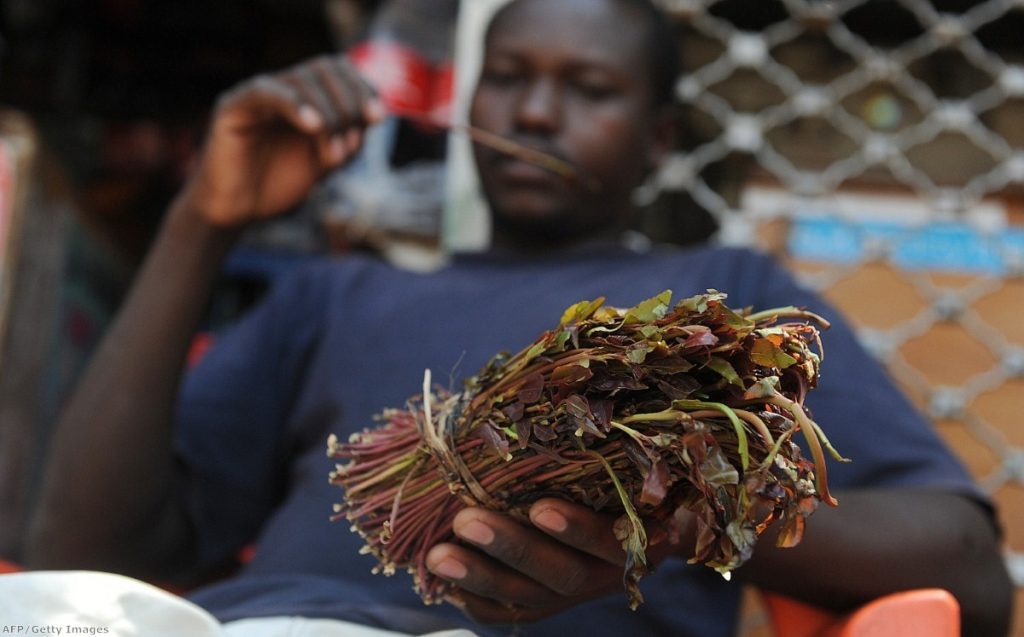Khat ban comes into force despite fears Somali community will be criminalised
The long-awaited ban on khat comes into force at midnight tonight, despite fears the move will criminalise communities from the Horn of Africa.
Police have been told to take a 'softly softly' approach to the new law, with users given a warning for a first offence, a £60 fine for a second and only facing possible jail time for a third offence.
"Our message is very much that the best result for us will be if don't arrest anyone," Detective Superintendent Simon Rose told the Evening Standard.
"We don't want to criminalise the community over this so we are trying to make sure that people are aware of the law and implications of bringing a small quantity back when they go to Somalia."


The Association of Chief Police Officers (Acpo) guidance said: "It is important that officers… retain their operational discretion; taking into account that khat has historically not been a controlled drug and was part of the culture for certain communities linked to the Horn of Africa."
Experts are concerned that the ban on the drug, which is as toxic as coffee and offers users a mild high, might push Somalis, Yemenis and Kenyans into criminal circles.
Others believe it may push users toward other illegal drugs like amphetamine. The required amount of khat needed for someone to get high is physically large, so users may be tempted toward narcotics which can be more easily concealed.
There are also concerns about the economic effect of the ban on southern economies.
In 2013, the value of khat exported from Kenya to the UK alone was over £15.4 million per year.
At various times in recent years, khat has been Ethiopia's second most lucrative export product after coffee. In 2012-13, khat export revenues for Ethiopia were estimated at £160.1 million.
"Increasingly the world is looking toward drug policies that minimise harm to people who use drugs as well as producer and transit countries," said David Bewley-Taylor, director of the Global Drug Policy Observatory.
"However, this new law is pulling a page from an outdated playbook. Even worse, it passes on the greatest costs to low-income producer countries when official experts found the substance does not pose a serious threat."
The ban, whch was brought in by Theresa May in order to bring the UK in line with other European countries, has been criticised by a wide variety of drug experts for having no evidential backing.
The Home Office's own report from 2011 found there was "a general lack of robust evidence on the link between khat use and social harms". Reports of harm to the Somali community were based on "often contradictory anecdotal statements".
Legislation against the drug in Europe and north Africa "had little success in curbing demand and has taken place with little consideration of evidence", it found.
The World Health Organisation also accepted khat is not a "seriously addictive drug".
And the home secretary's own drug advisers – the Advisory Council on the Misuse of Drugs (ACMD) – recommended against prohibition.
"In summary, the evidence shows that khat has no direct causal link to adverse medical effects," its report found.
"On the basis of the available evidence, the overwhelming majority of council members consider that khat should not be controlled under the Misuse of Drugs Act 1971.
"The ACMD considers that the evidence of harms associated with the use of khat is insufficient to justify control and it would be inappropriate and disproportionate to classify khat."
In a humiliating move for the home secretary, the home affairs committee recommended that the government halt plans to ban the drug.
"It is extremely worrying that such an important decision has not been taken on the basis of evidence or consultation," chairman Keith Vaz said.
"The expert Advisory Council on the Misuse of Drugs conducted a thorough review of the evidence and concluded that no social or medical harm resulted from the use of Khat."
He added: "It is baffling that potential friction, between already disadvantaged communities and the police, has not been fully considered.
"We cannot afford for those who are already marginalised to be pushed towards criminality or extremism."
Critics also complained that no proper consultation had been undertaken on the drug, despite the Home Office relying extensively on comments from those within the Somali community demanding a ban.
Those running khat chewing houses, known as mafreshis, are being encouraged to transform their business into a cafe or take up alternative employment like taxi driving.
The ban comes just two days before a global protest against anti-drugs laws, set to take place in 80 cities on June 26th.
Demonstrations are expected in London, Paris, Warsaw, Mexico City, Kathmandu, Rome, Phnom Penh, Tbilisi, Kuala Lumpur, Moscow and more than 70 other cities.
The demonstrations are timed to coincide with the United Nations' International Day against Drug Abuse and Illicit Trafficking.












